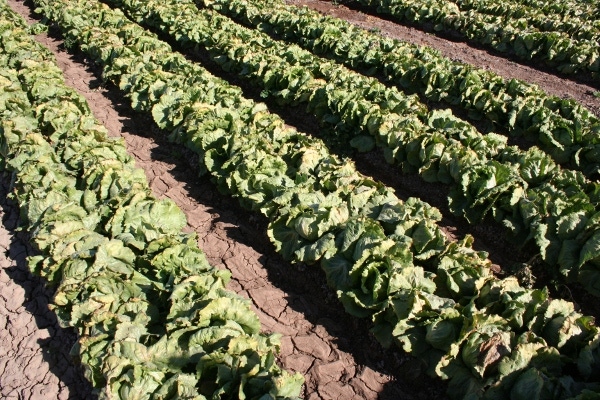
U.S. and Mexico governments announced an agreement in principle to provide a path to concluding the nearly two-year-long dispute of the Cross Border Trucking Pilot Program.Once the agreement is finalized, it will have a positive impact on the fresh produce industry—particularly producers of lettuce, pears, grapes, strawberries, apricots and almonds—as it could significantly reduce tariffs on produce shipped to Mexico. Since the dispute began growers in California and Arizona have seen sales to Mexico decline.
March 7, 2011

U.S. and Mexico governments announced an agreement in principle to provide a path to concluding the nearly two-year-long dispute of the Cross Border Trucking Pilot Program. Once the agreement is finalized, it will have a positive impact on the fresh produce industry—particularly producers of lettuce, pears, grapes, strawberries, apricots and almonds—as it could significantly reduce tariffs on produce shipped to Mexico. Since the dispute began growers in California and Arizona have seen sales to Mexico decline.
This is welcome news that is long overdue,” said Tom Nassif, president and CEO of Western Growers. “Many of our members have been caught in the middle of this dispute over the last two years. It is in times of economic challenge that barriers to trade should be lifted, not fortified. We urge the governments to finalize this agreement and ask members of Congress to support the resolution.”
In the agreement, Mexico would lift 50 percent of the tariffs when the final agreement is signed by both nations. That could amount to a significant reduction in tariffs affecting fresh produce which range from 10 percent to 45 percent on fruits, vegetables and nuts shipped to Mexico. Shippers paying a 40 percent tariff would now pay a 20 percent tariff, according to the deal.
The remaining tariff would be lifted when the first Mexican carrier is authorized under the new program.
Western Growers has been very active working with several federal agencies including USDA and the Office of the U.S. Trade Representative since March 2009, to bring this program back as the specialty crop industry—particularly producers of pears, grapes and almonds—have seen sales to Mexico drop considerably due to the high tariffs levied by Mexico on these, and other, U.S. imports. The tariffs were in retaliation of the U.S. government’s termination of the pilot trucking program. An estimated $900 million in U.S. agriculture products have been impacted by the tariffs.
In January, the Obama administration issued a proposal http://www.fmcsa.dot.gov/documents/cross-border/Concept-Trucks-English.pdf to form the basis for a negotiation to resolve the cross-border trucking dispute with Mexico. In a January conversation with Nassif, U.S. Secretary of Agriculture Tom Vilsack identified five truck safety issues he said were reasonable and necessary to resolve the dispute. These included requirements that drivers have good driving records and understand U.S. and state driving laws; drivers can speak sufficient English; vehicles are safe to drive and comply with emissions standards; vehicles be inspected and carriers have safety management programs in place.
You May Also Like



